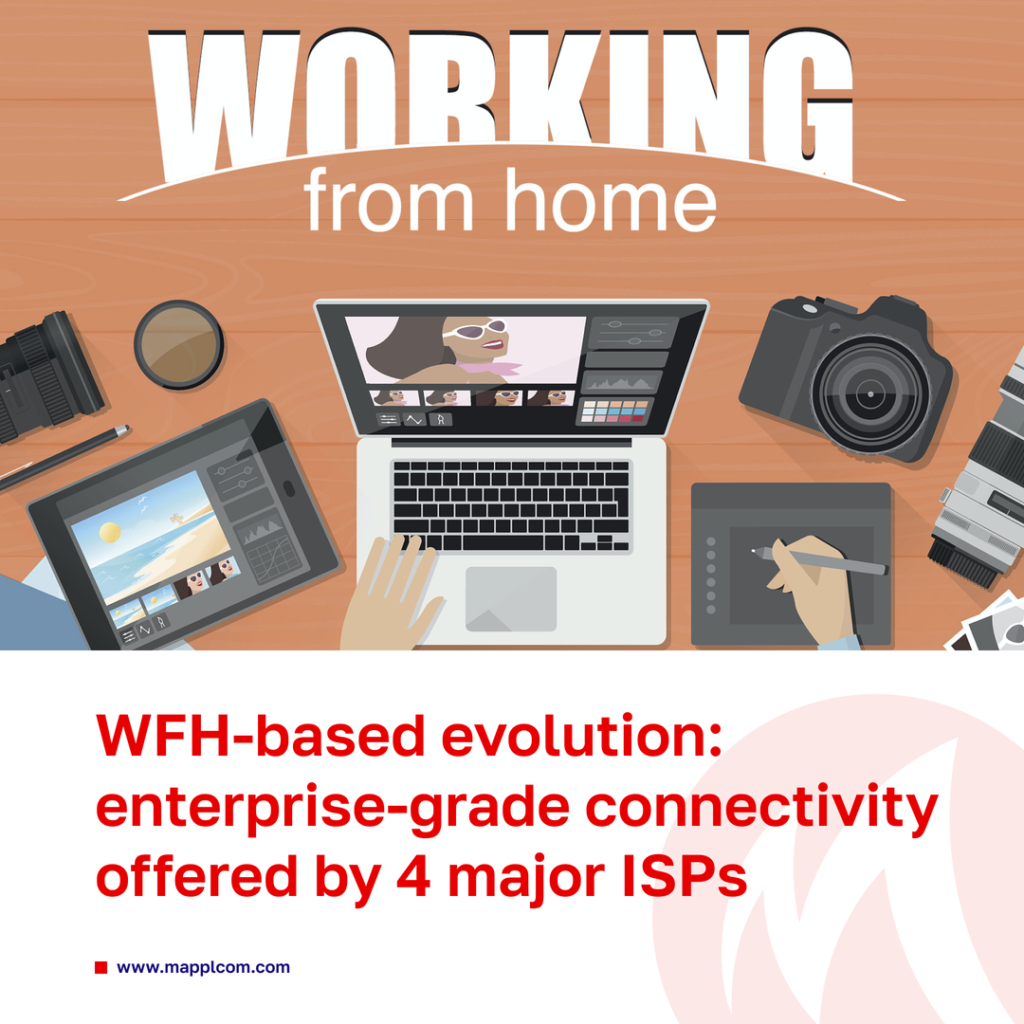WFH-based evolution: enterprise-grade connectivity is now offered by 4 major ISPs

Except for some “fashionable” coronavirus-triggered trends in 2020 like video conferencing and cocktails-to-go, the world has encountered some more severe issues which interrupt daily social processes and threaten economic life of the globe. In order to overcome the impact of coronavirus, many companies developed and implemented some digital tools which seem to stay long after the situation is normalized. A representative example here is services supporting telework as their true value has been recognized recently, as well as their cost-efficiency versus the cost of office space.
More and more players in telecom solutions market generate innovative platforms for delivering higher productivity to those employees who have decided to continue taking the advantage of WFH (work from home). Surprisingly enough, a wide range of factors (such as connection quality, speed, uninterruptedness, coverage, visual cues, extra functionality) influences the capacity of a single worker and, therefore, an overall performance of a company. So, the demand on this type of solutions is already anticipated to be extremely high. So far, at least four pretty solid ISPs managed to proceed their products to the stage of commercial sales are now supplying corporate clients with an enterprise-grade internet service designed specifically for their home-based workers. Depending on a particular case and a certain developer, this service may mean anything from extra-secure access to a corporate WAN to a reliable high-speed connection. Sometimes, the product is a combined result of both, complemented by other features like static IP addresses and SD-WAN. All of these features are delivered as an complement for one’s existing internet connection, not as a kind of replacement.
Many telecom operators market announce their options as a way to “take employees off personal internet,” this is why they also offer adding on-site installation and promise speeds up to 1 Gbps without data caps and a unified billing system through which the company can pay in a consolidated way for all employees who consume the service. Optionally, enterprises are able to include an endpoint protection service through a SD-WAN compatible security gateway and data loss prevention solutions. Providers promise to their client’s wireless broadband options in regions which currently are not covered with any “High Speed Internet-Enterprise” offerings. It can be mentioned here, that this service is, in addition, a chance for Home Office Connectivity customers whose internet connection too weak. Overallly comparable (and competitive, by the way) services are offered by some other players.
The recent pandemic challenges triggered creation and development of special tools for overcoming poisonous (for socio-economic life) consequences of COVID-19. It has also created whole niches driven by a necessity to handle forced digital transformation. Majority of the new services has the potential to bring more reliable and faster internet to residential users. No doubt, that the extent to which companies can use the services for online activities not related to working process will vary from one to another, but it seems that most home-based workers do not much complain about the additional bandwidth.

